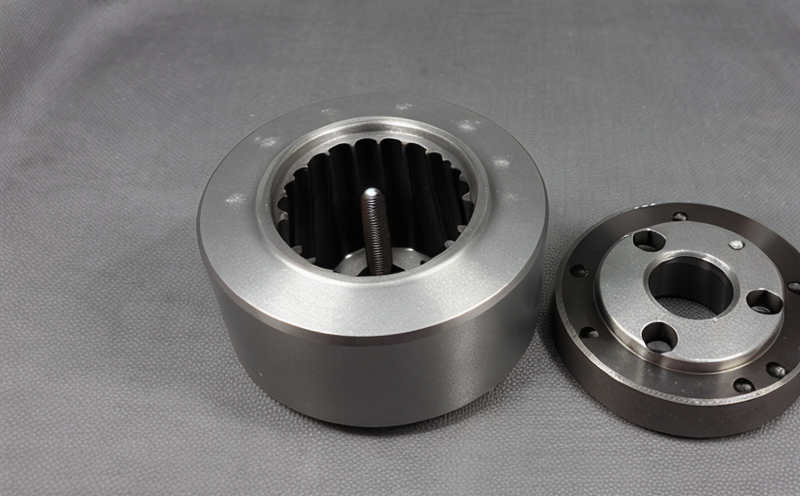ASTM B212 Apparent Density Testing of Metal Powders
The apparent density testing as per ASTM B212 is a critical procedure for ensuring the quality and consistency of metal powders used in powder metallurgy (PM) and additive manufacturing (AM). This test measures the mass of a specific volume of metal powder, which helps in assessing the uniformity and packing density of the material. Accurate apparent density values are crucial because they directly influence the performance characteristics of the final product.
The ASTM B212 standard provides detailed procedures for determining the apparent density of metallic powders through static volumetric techniques. This test is particularly important for powder metallurgy, where the quality and consistency of metal powders can significantly impact the mechanical properties of the end-product. In additive manufacturing processes like laser sintering or binder jetting, the uniformity of powder particles affects the build quality and ultimately the part's strength and durability.
During the testing process, a known mass of metal powder is packed into a standard volume container under controlled conditions to ensure consistency in results. The apparent density is calculated by dividing the mass of the powder by the measured volume. This value helps manufacturers and researchers understand how tightly packed the powder particles are, which can affect sintering behavior or the layer-by-layer build-up process.
The ASTM B212 method ensures that the testing protocol is consistent across different labs, thereby providing reliable data for quality control and process optimization. By adhering to this standard, organizations can ensure they meet industry benchmarks and regulatory requirements, especially in sectors where precision and reproducibility are paramount.
| Applied Standards |
|---|
| ASTM B212 - Apparent Density of Metal Powders |
In summary, ASTM B212 apparent density testing is essential for powder metallurgy and additive manufacturing industries. It provides a critical measure that ensures the consistency and quality of metal powders used in these advanced manufacturing processes.
Why It Matters
The importance of ASTM B212 apparent density testing cannot be overstated, especially for industries reliant on powder metallurgy and additive manufacturing. The mechanical properties of materials manufactured using these techniques are heavily influenced by the packing density of metal powders.
Increased apparent density can lead to higher material strength and better wear resistance in final products.
Poorly packed powders may result in weaker parts with reduced durability, leading to potential failures during use.
Uniformity of packing is crucial for consistent product quality, ensuring that each batch meets the required specifications.
By adhering to ASTM B212 standards, manufacturers can ensure that their processes are reliable and reproducible, which is essential in maintaining high-quality output. This standard also aids in process optimization by providing insights into the ideal packing conditions for different types of metal powders.
In addition to quality assurance, apparent density testing helps in identifying any inconsistencies or variations in the powder batches. Such information can be used to adjust manufacturing processes and improve overall product performance. For R&D teams, this data is invaluable as it allows them to explore new materials and optimize existing ones for specific applications.
Applied Standards
| Standard Name | Description |
|---|---|
| ASTM B212 - Apparent Density of Metal Powders | This standard provides a method for measuring the apparent density of metallic powders. It is widely used in powder metallurgy and additive manufacturing to ensure consistent quality. |
Adherence to these standards ensures that testing methods are standardized, leading to more reliable and comparable results across different laboratories and facilities.
Quality and Reliability Assurance
Consistent use of calibrated measuring devices for accurate volume measurement.
Controlled environmental conditions during testing to minimize external variables affecting the outcome.
Repeatability checks on multiple samples to ensure that results are consistent and reliable.
Regular calibration of equipment to maintain precision and accuracy over time.
The ASTM B212 standard outlines these and other quality assurance measures, ensuring that the apparent density testing is performed under controlled conditions. This helps in maintaining high standards of reliability and consistency in product performance across different batches of metal powders.





